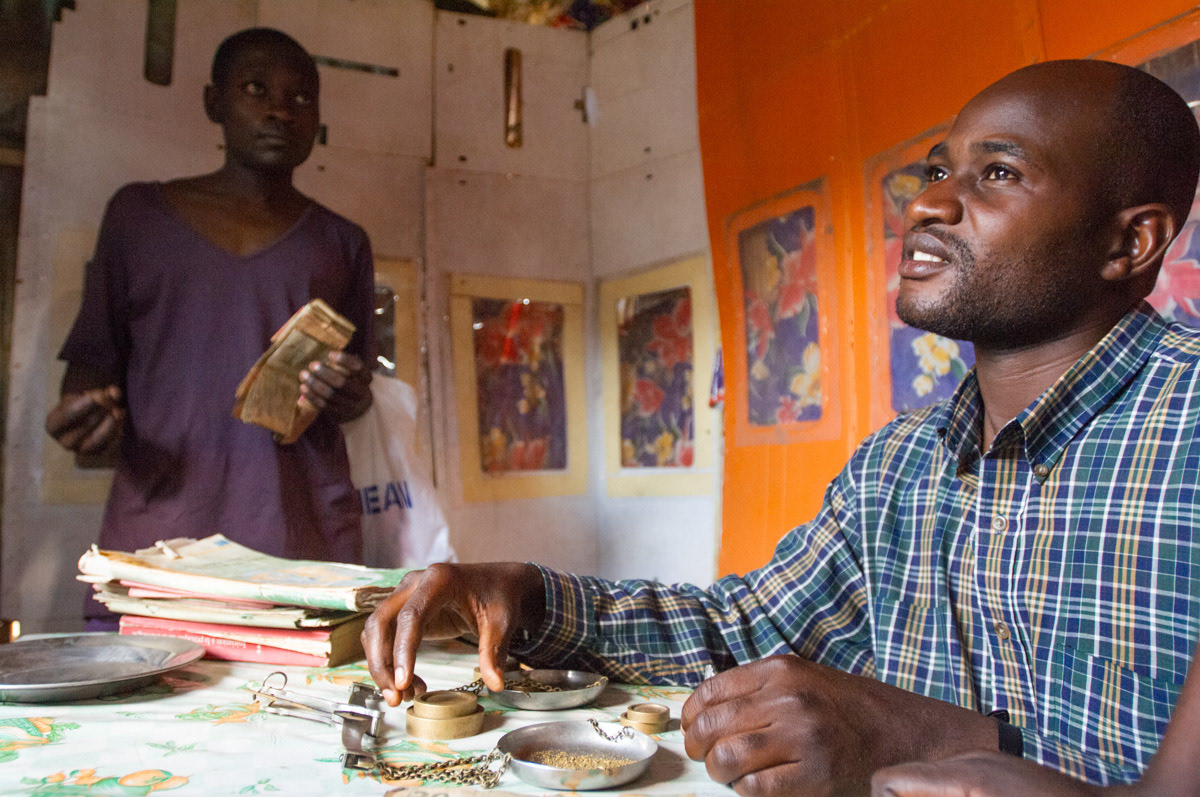Text written by Georgina from the article published in BBC Focus on Africa Magazine October - December 2007. (Additional images shown below to those in the article)
Poverty and war have forced hundreds of women in the DR Congo's gold-rich town of Mongbwalu in the east of the country to risk their lives working as 'human mules' deep inside disused mines.
Women - some as young as 16 and others older than 50 - enter the mines to collect sacks of rocks weighing up to 60 kgs. Carrying such weights on their backs, at times up to seven kilometres to the surface, has had a devastating effect on the health of these women. Some, working when they are pregnant, have miscarried.
The women, earning on average $5 a day, have to crawl through tiny passages, torch in mouth, pushing or pulling their sacks, and are at risk of getting stuck deep underground. At times they find themselves in pitch blackness walking waist deep in water. These women are working in mines where the gold is particularly hard to find. As a result, both men - who break rocks - and women - who transport them - are forced deep into old shafts where there is a high safety risk including weak walls and limited oxygen.
Once outside the mine, the nightmare continues as the women are expected to carry the rocks for up to three hours through hilly terrain to workshops. Many are widows, having lost their husbands to war or disease, and know no other work to earn money for their families. Carrying rocks may be killing them, but the income is immediate and more reliable than farming.
"Living on gold should be a blessing, instead it is a curse," says Elisabeth Buve Love, a representative of these women in the town. The Catholic aid agency Cafod wants jewellery retailers and mining companies to sign up to a set of "responsible mining" rules, and for governments and businesses to give affected communities much greater say in whether gold is mined, how it is done so, and who benefits.
Finalist in Diageo Africa Business Reporting awards 2008 - Best Published Photograph.
Radio Interview - BBC World Service, OUTLOOK, Friday October, 26, 2007: Young women working underground in north-eastern Congo's gold mines.
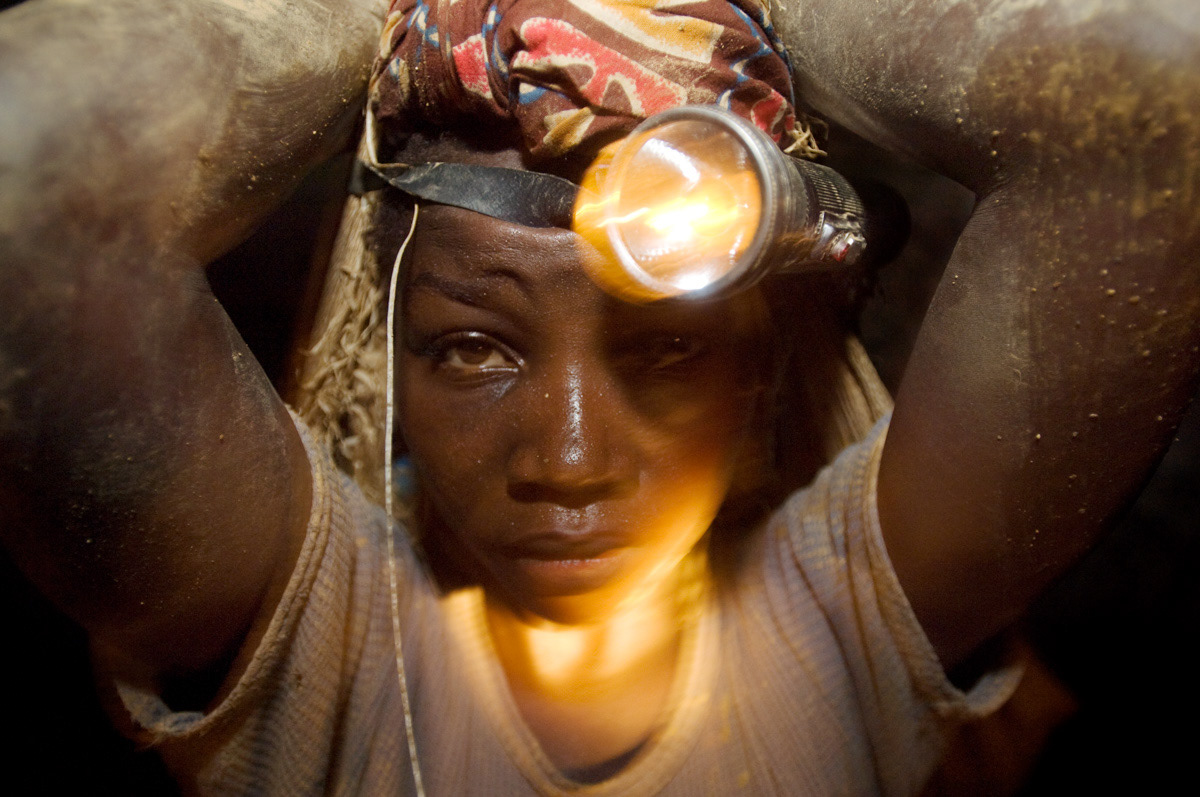
A young girl carries around 40kgs of rocks out of Adidi gold mine.
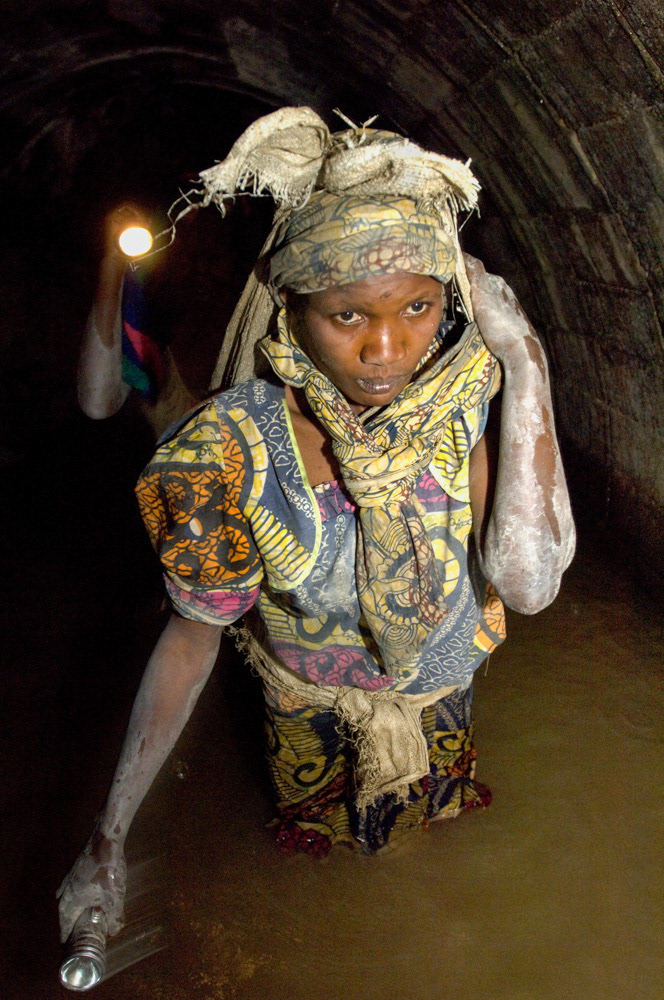
Dorica Biwaga, 25, waist deep in water, carries 30 kgs of rocks out of Makala gold mine, after six hours inside. Her sister, Emanuella, 40, follows behind. They crawled for three hours, through tunnels so narrow that at one stage Dorica got stuck. Dorcia, a widow and mother of two, started this work in 1996. Her body is in constant pain from the work, and her periods irregular.
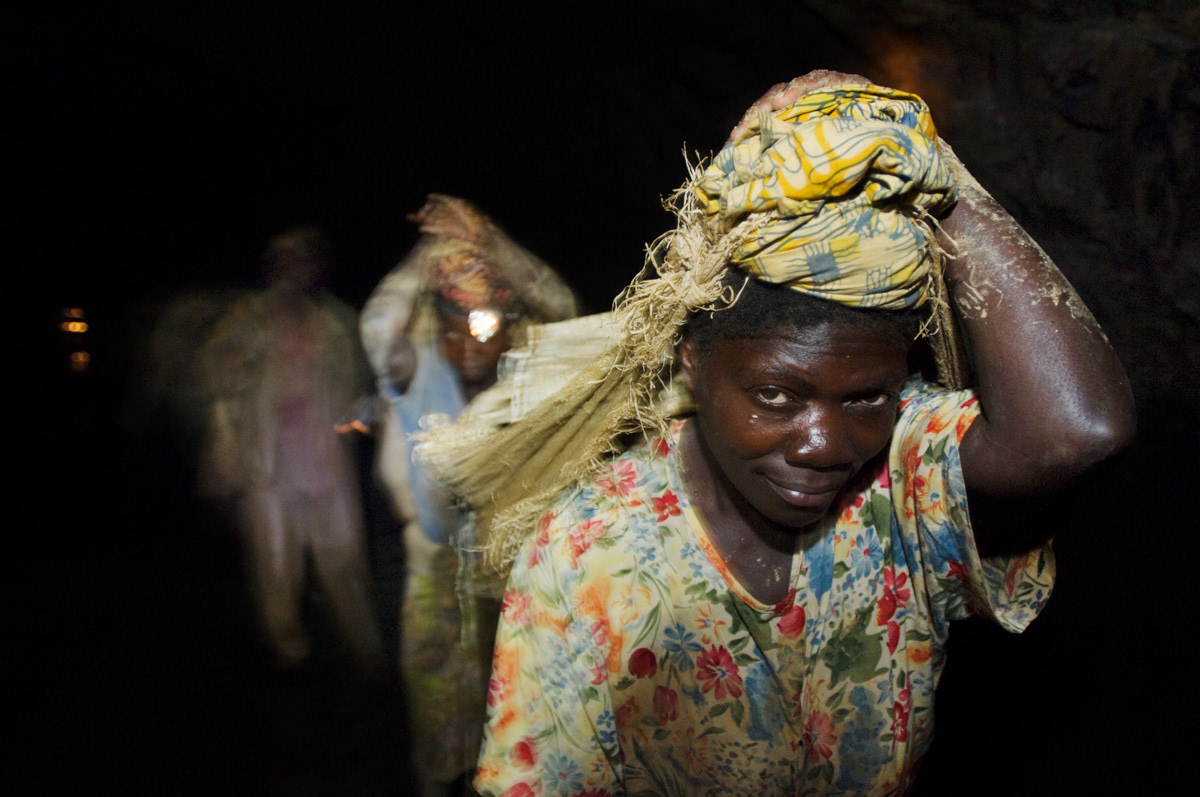
Marie Jeanne Molianeni: "I have eight children. THer were nine but I lost one in a miscarriage. It was while carrying rocks that I felt pain inside, so I went to the hospital but it didn’t surive.”
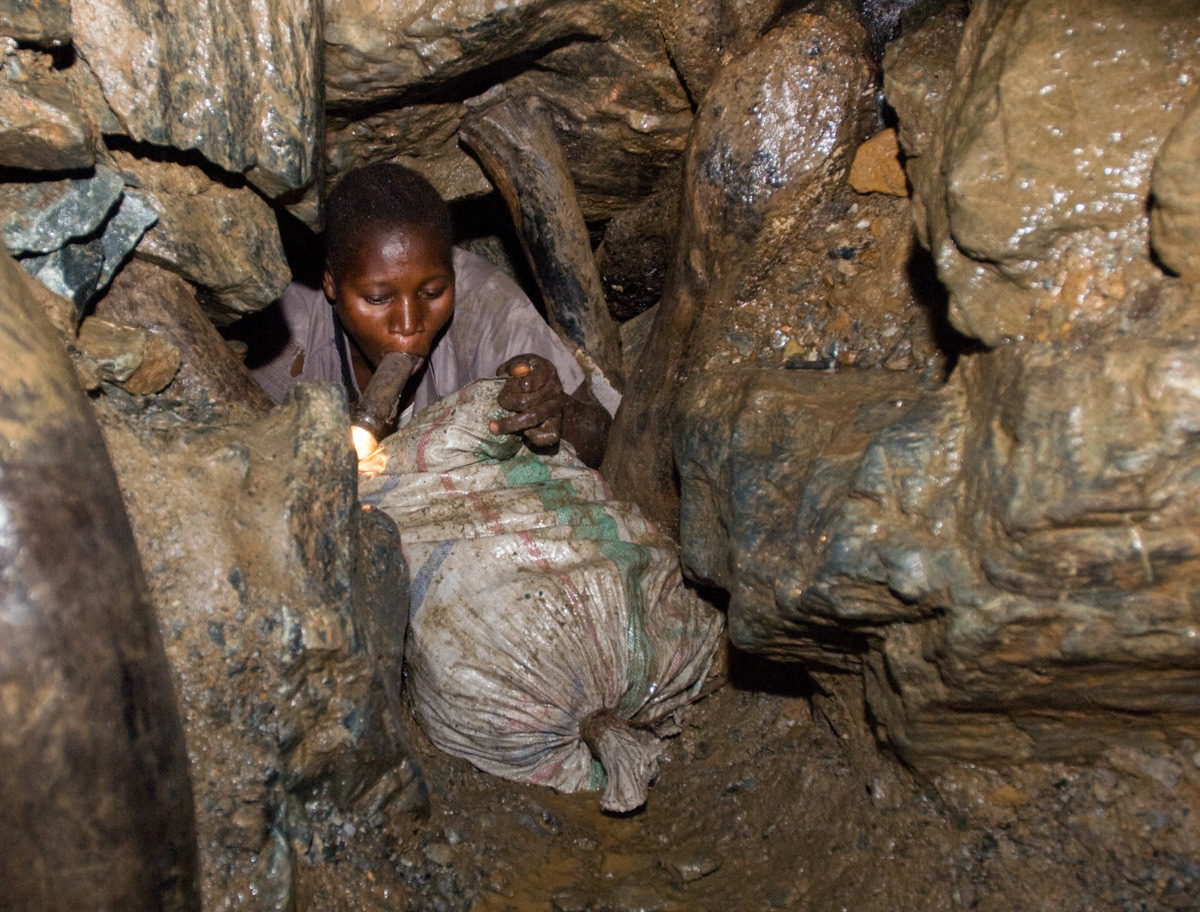
Lotsove Aduba, 27, a widow, pushes up to 60 kgs of rocks through a narrow tunnel inside Senzere mine. “Sometimes we feel dizzy because of a lack of food. I was carrying when I was pregnant. I carried until I was one month from delivery. I was crawling on my stomach, I felt backache, waistache, but I delivered without a problem.”

An elderley woman carries a heavy load of rocks out of Adidi mine.
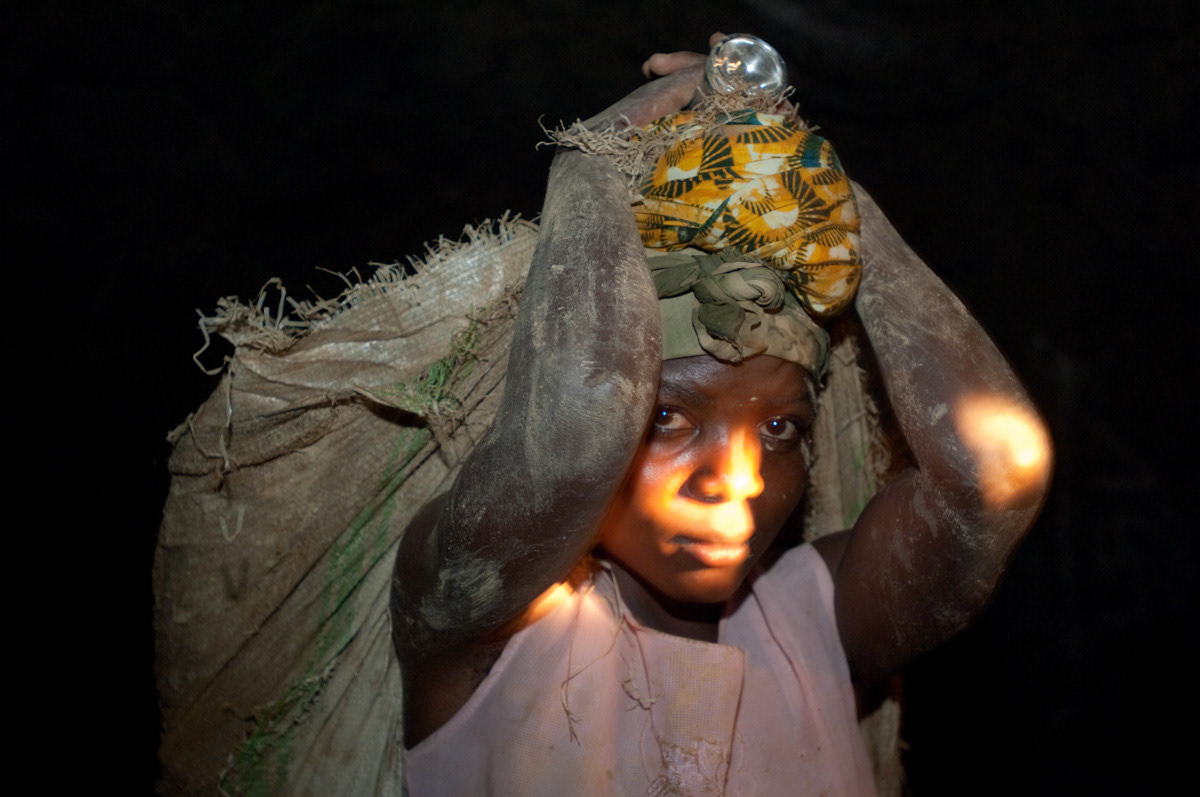
A young girl carries up to 40 kgs of rocks, on her back, out of Adidi mine in north eastern Congo.
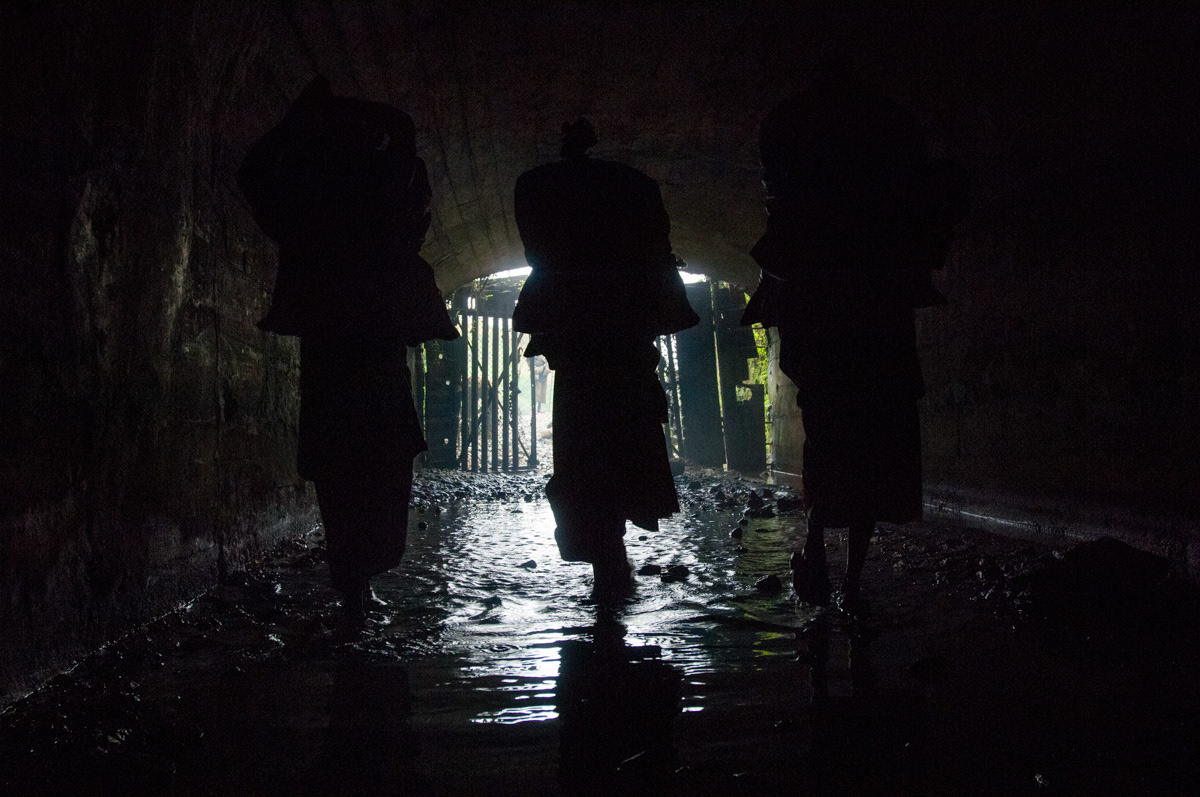
Three women carry bags of charcoal into Adidi mine, which will be burnt to assist in breaking the rocks. This depletes the oxygen levels in the mine creating a serious health risk.
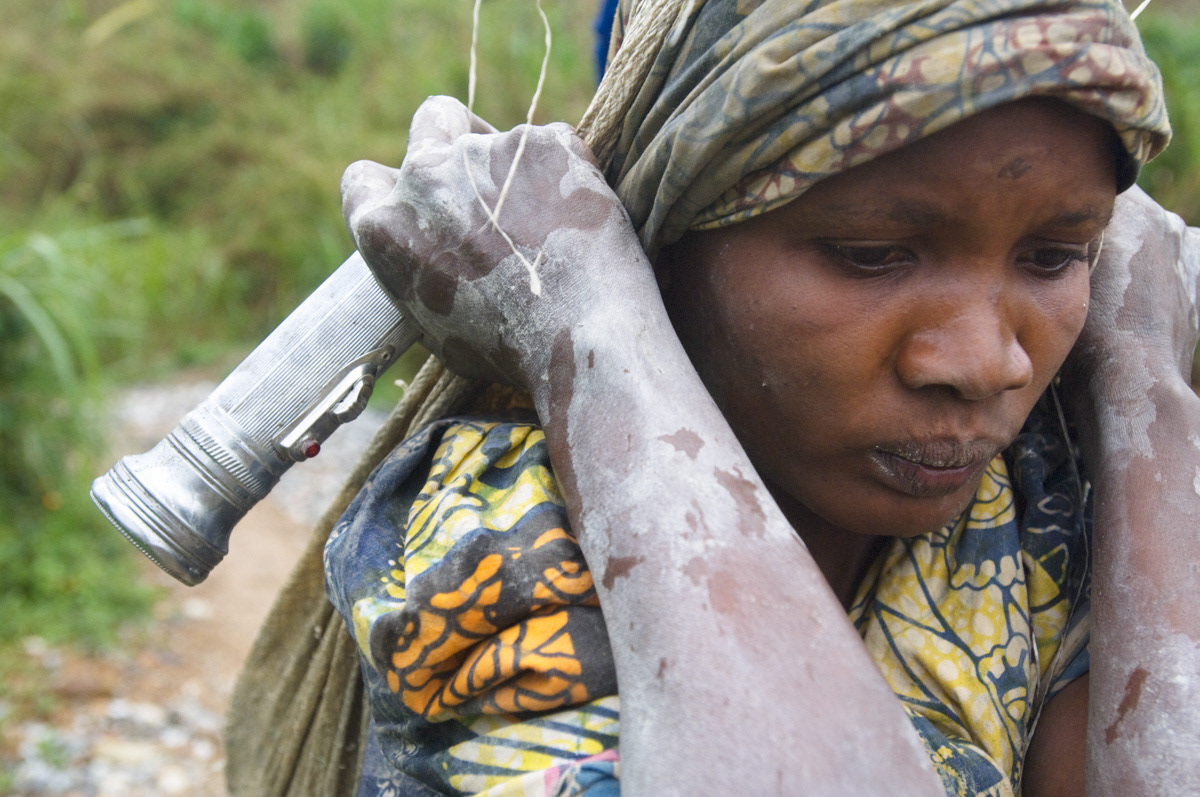
Dorica Biwaga, 25 "I used to sleep inside the mine but you can get very sick because it is too cold. The body hurts, the waist, the back, the shoulders and the chest when breathing.
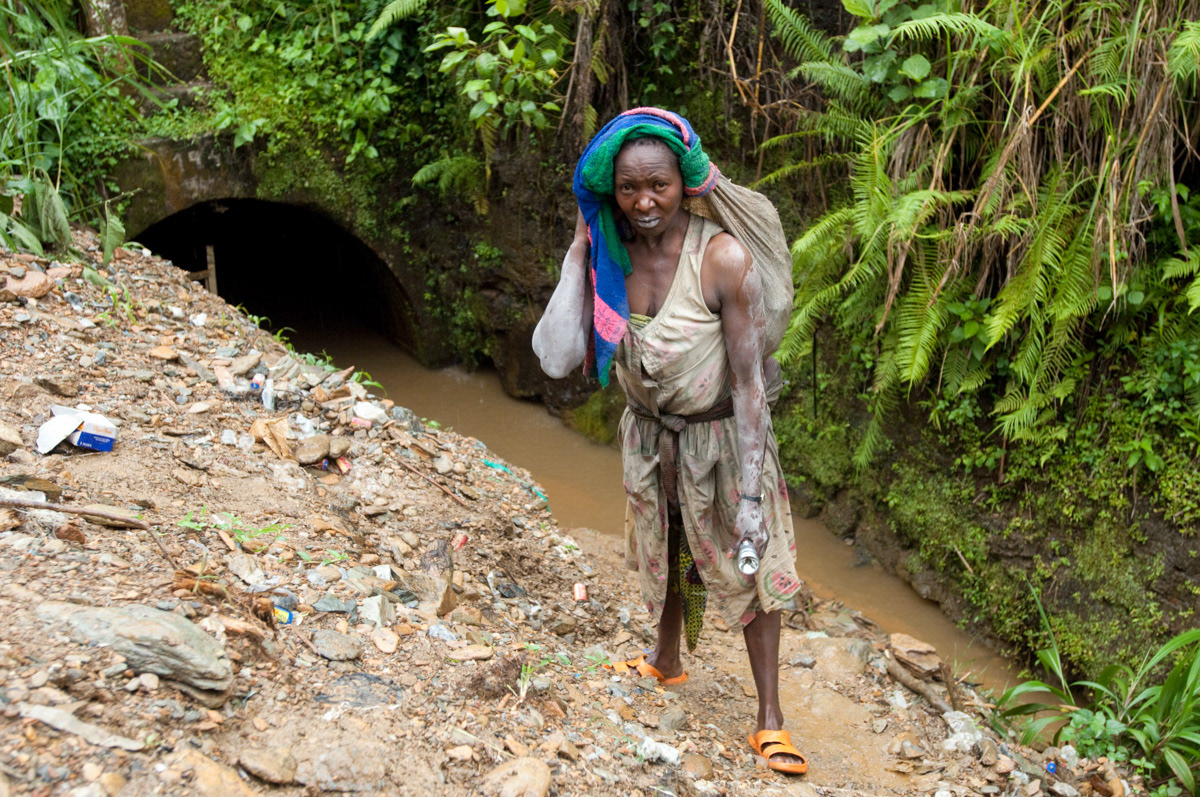
Emanuella, 40, leaves Makala mine after six exhuasting hours inside. "Here it is terrible. We crawled for three hours today, on our chests and backs. We carried it bit by bit because the way is so narrow."
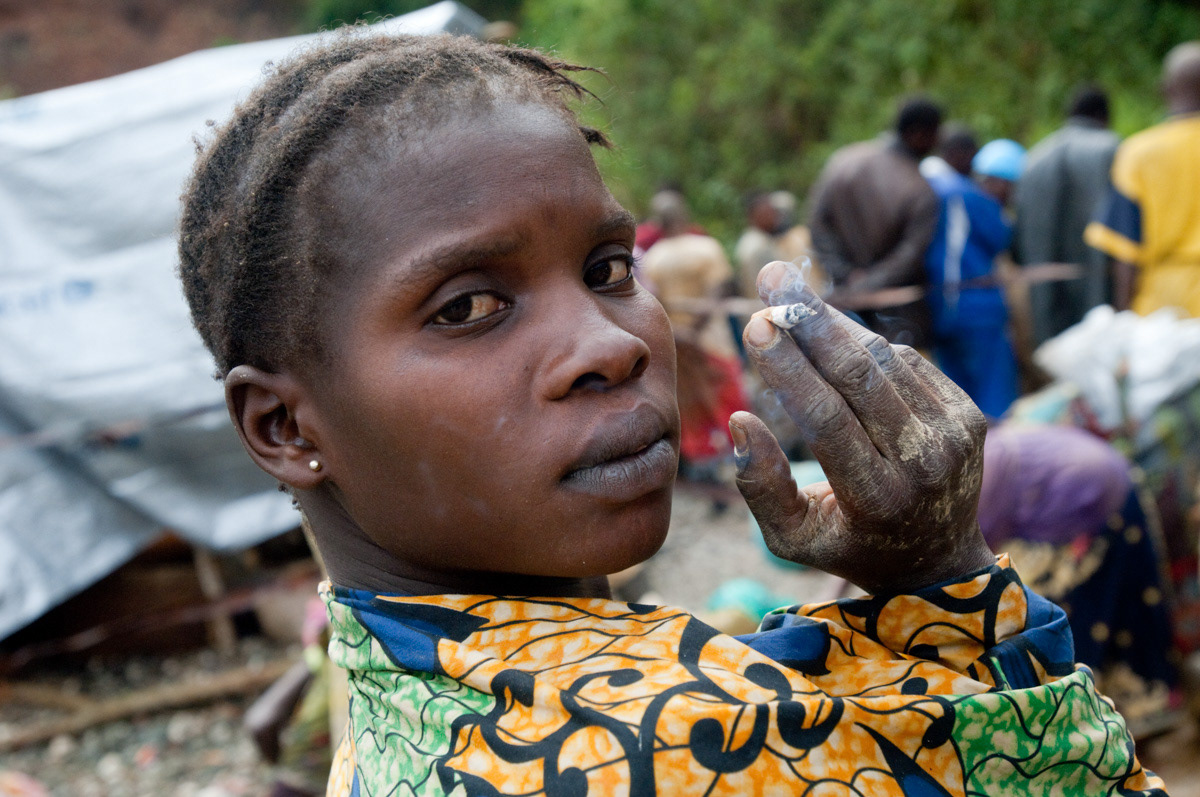
A woman waits outside of Adidi mine in the hope of work collecting rocks from inside. There is an increasing amount of competition for work as more women arrive in search of work.

A heavily pregnant woman lines up to collect rocks which she will haul for over two hours to a workshop. Some women carrying out such work when pregnant, have had miscarriages.
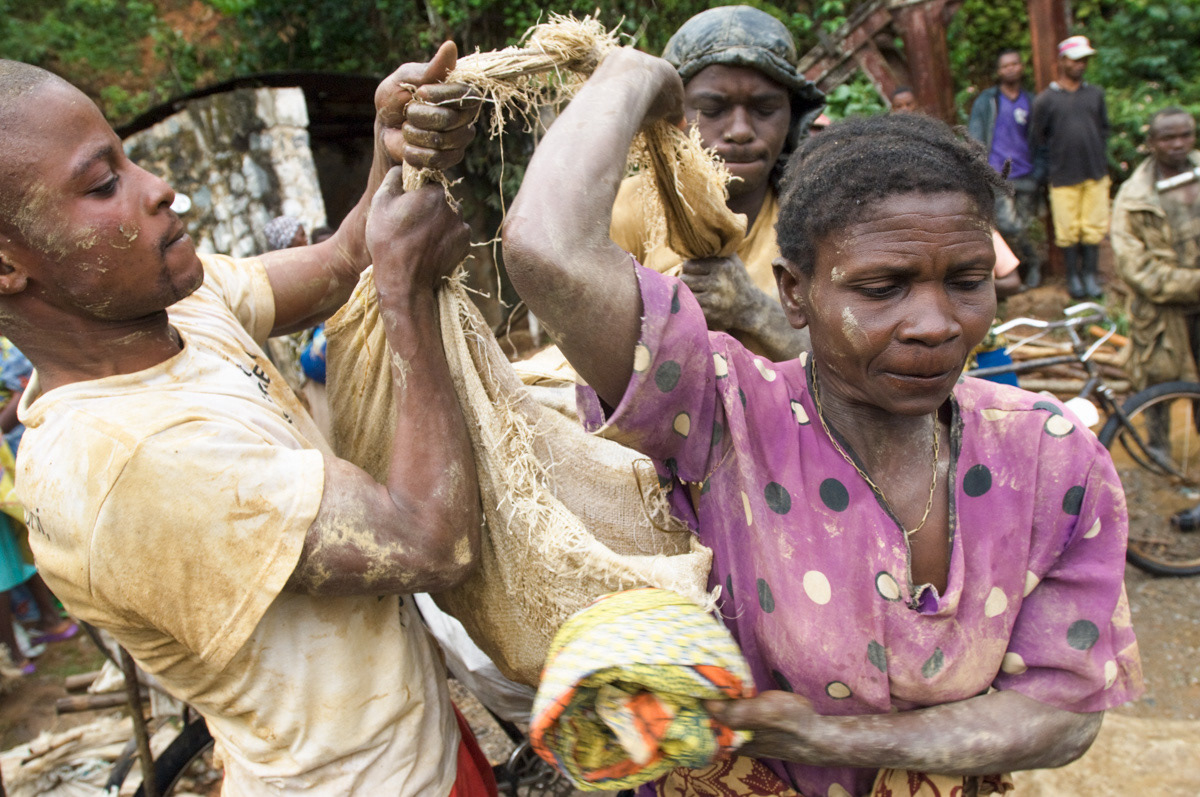
Nobikana Mary, 43, hoists up to 50 kgs of rocks on to her back with the help of two men. Her husband has TB and is very weak. They have nine children. "There is no-one else to help me."
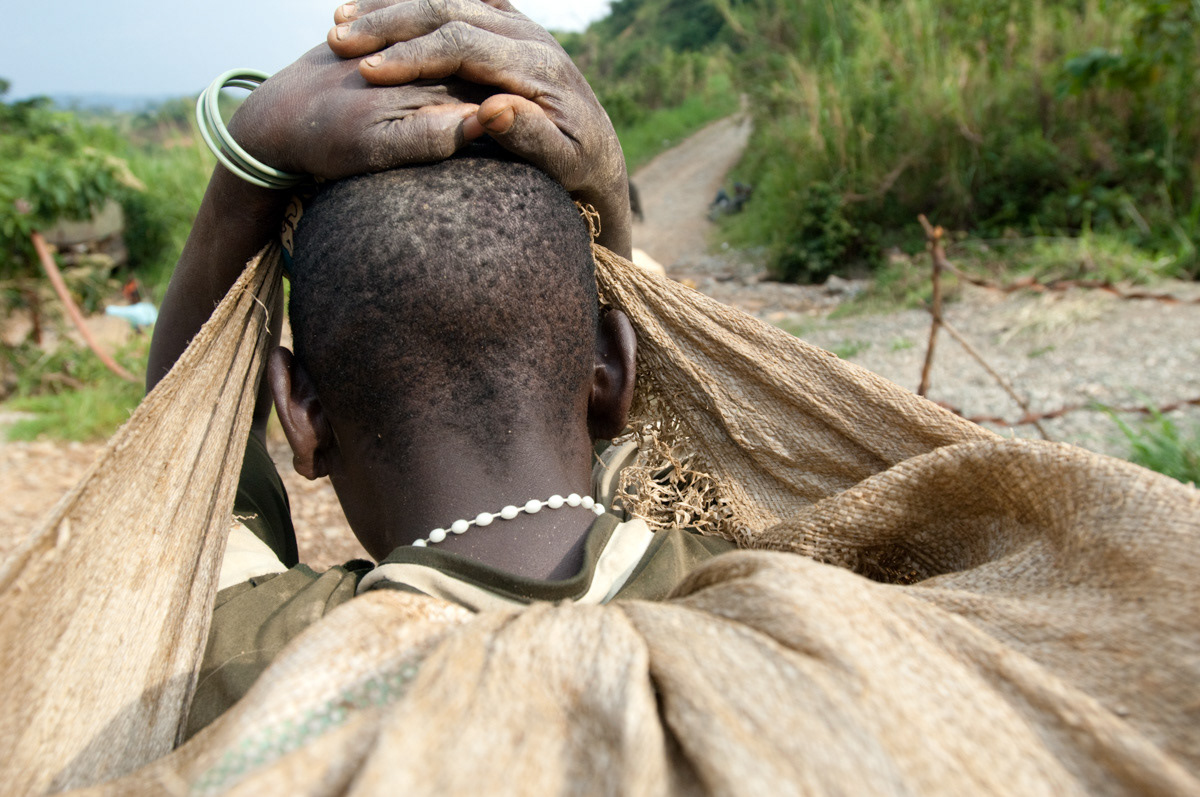
The impact on these womens' bodies of carrying such weights (at times up to 60 kgs) can be devastating. This young girl will carry these rocks over hilly terrain for more than two hours.
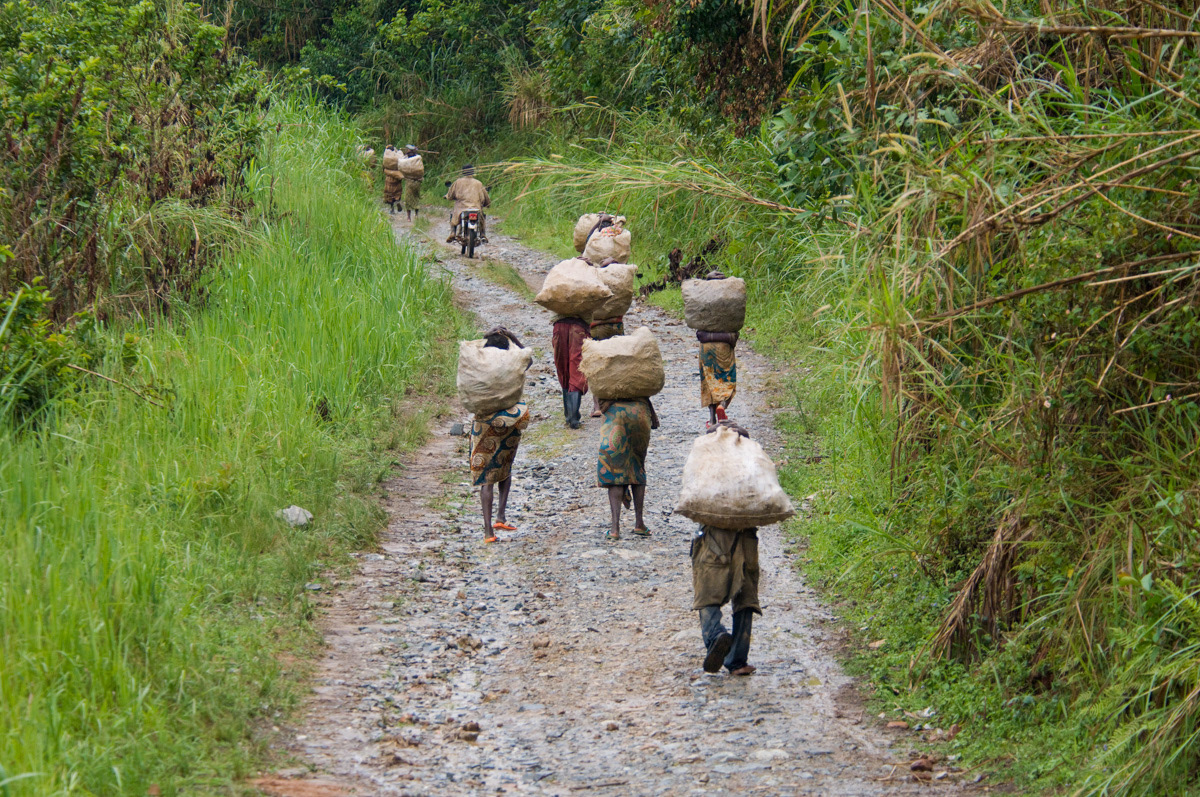
Women start the 2-3 hour gruelling trek carrying rocks from Adidi gold mine, at weights up to around 60 kgs to the workshops where they will be crushed.

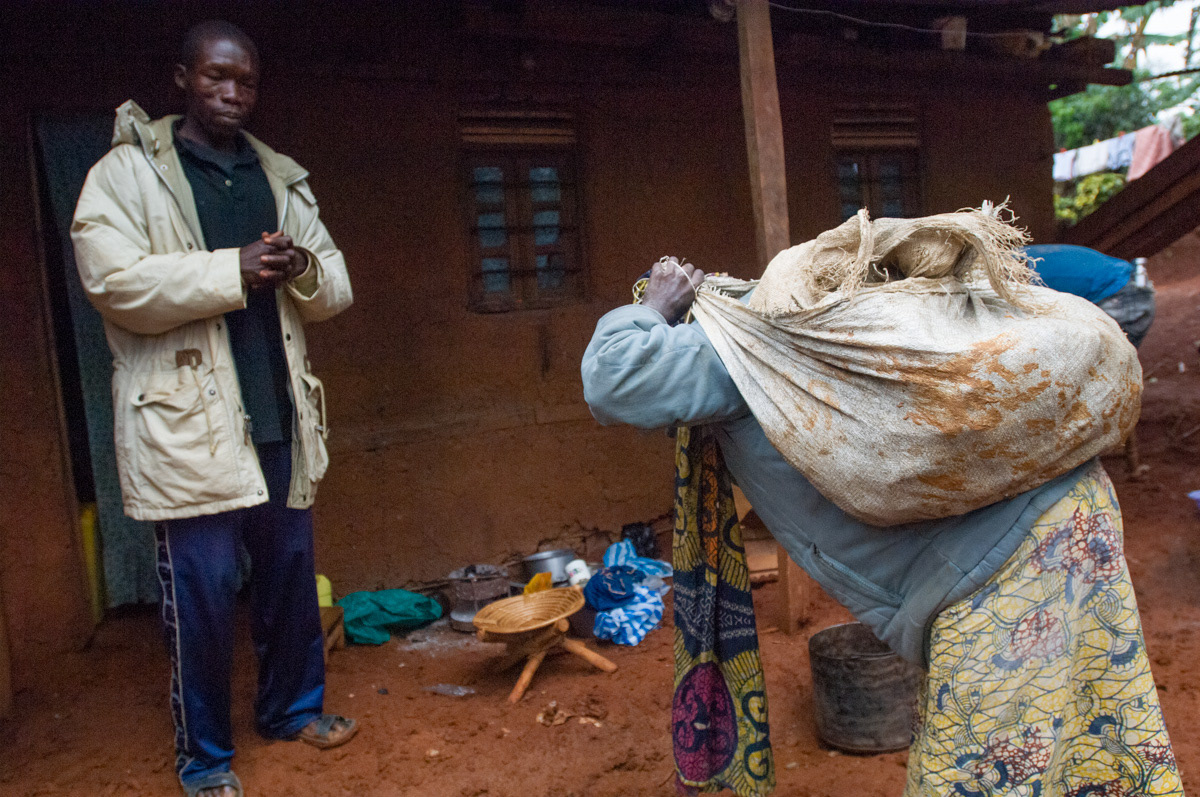
Dorica Biwaga, 25, finally arrives to deliver the rocks and receive payment for over seven hours of back breaking work, crawling, trekking and hauling of more than 30 kgs of rocks from the goldmine.

"I only work for food for today and then tomorrow we will come again."
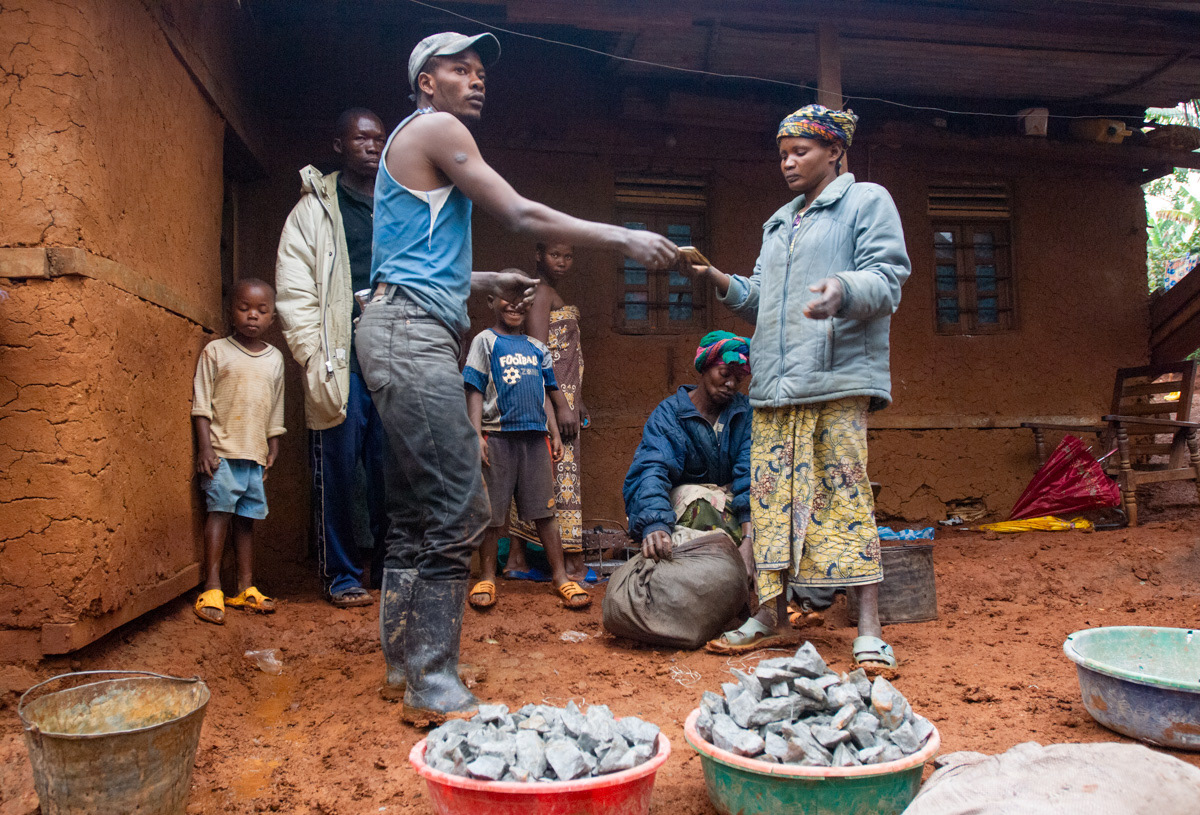
Dorica and her sister have earnt just £3 between them. "We went so far, we entered at 9 and came out at 3:30. I am hurt because of crawling, it wasn't easy today."
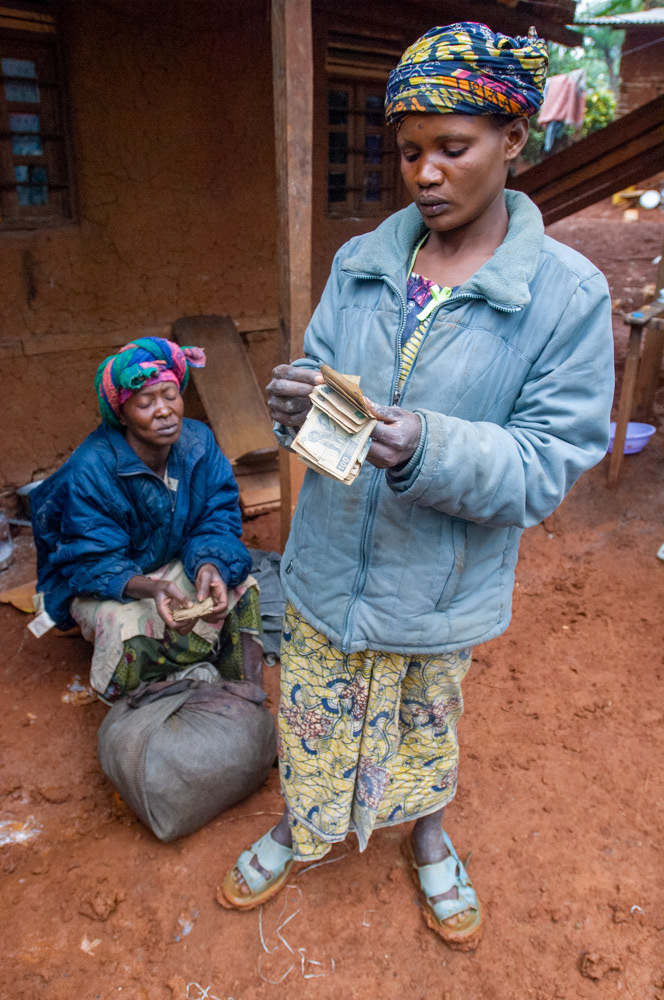
Dorica started carrying rocks in 1986. "Before, this work was paying very well, but now what I am paid is meaningless. I even bought land and built a house but it was destroyed in the war."
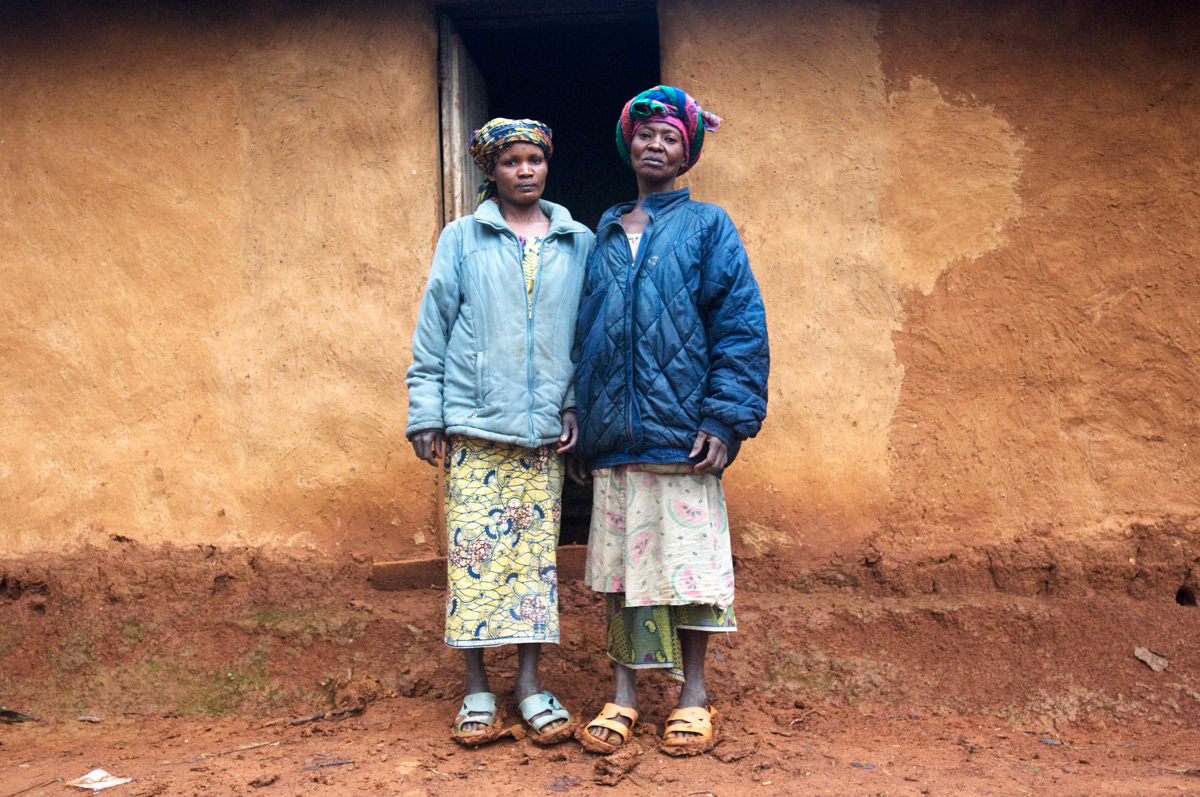
Dorica (left) has lived with her sister Emanuella, since she was pregnant. "Even now it is my sister who takes care of my children, they call me their elder sister, they don't know me as their mother."

Mongbwalu's main street. Life is expensive in this very run down town as produce is bought in from other areas. A representative of the women said "Living on gold should be a blessing, instead it is a curse."

A woman finishes her long trek from the mines to Mongbwalu town centre, in the dark. Many of the women are widows, having lost their husbands to war or disease, and know of no other work.

Gold. With the depletion in rock supplies, and therefore gold, miners are having to go deeper to find the rocks, and so too are the women, where the risks are higher, and conditions even worse.
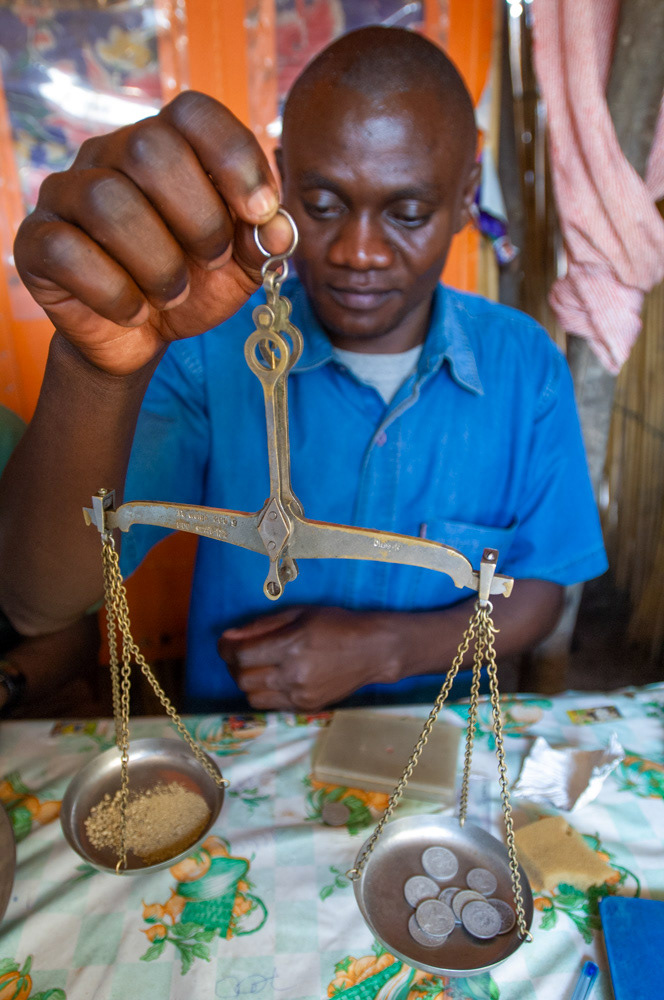
A man in Bunia, the capital of the Ituri district, weighs gold bought by an agent from Mongbwalu, three hours drive away.
